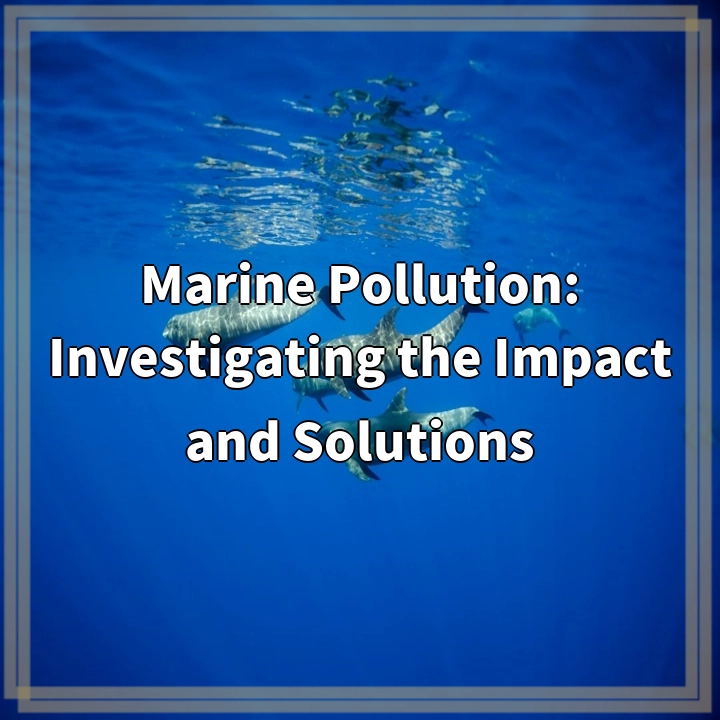Physical Address
304 North Cardinal St.
Dorchester Center, MA 02124
Physical Address
304 North Cardinal St.
Dorchester Center, MA 02124

Marine pollution is a global environmental issue caused by human activities. It refers to the contamination of the ocean and other bodies of water by substances such as plastics, chemicals, oil spills, sewage, and agricultural runoff. This form of pollution poses a significant threat to marine ecosystems, as well as human health and well-being.
Destruction of Marine Ecosystems: Marine pollution has severe consequences for marine life, leading to the destruction of habitats, loss of biodiversity, and negative effects on the food chain. Chemical pollutants can accumulate in the tissues of marine organisms, causing physiological harm and disrupting reproductive systems.
Threat to Marine Species: Various species of marine animals and plants are at risk due to marine pollution. Plastic debris can entangle marine mammals and birds, resulting in injury or death. Ingestion of plastic can cause digestive issues, internal injuries, and starvation in sea turtles and marine mammals. Toxic substances in the water further impact the development, growth, and reproductive abilities of marine organisms.
Human Health Risks: Marine pollution also poses risks to human health. Contaminated seafood can contain high levels of toxins such as mercury, which can have detrimental effects on the nervous system, developmental processes, and overall well-being. Polluted waters can negatively impact coastal tourism and recreational activities, leading to economic losses for local communities.
Reducing Plastic Waste: To combat marine pollution, efforts must be made to reduce plastic consumption and promote sustainable alternatives. Implementing plastic bag bans, promoting reusable shopping bags, and encouraging the use of refillable water bottles are practical steps in reducing plastic waste and preventing it from entering our oceans.
Improving Waste Management Systems: Proper waste management is crucial to prevent waste from reaching the oceans. Governments and communities should invest in efficient waste collection systems, recycling facilities, and waste treatment plants. Educating the public about responsible waste disposal and the importance of recycling can also play a significant role in reducing marine pollution.
Regulating and Monitoring Industrial Discharges: Strict regulations and monitoring systems are necessary to ensure that industrial waste is treated properly before being released into the environment. This includes monitoring effluents from factories, oil refineries, and wastewater treatment plants to prevent harmful substances from contaminating marine ecosystems.
Implementing International Agreements and Collaborations: Given that marine pollution is a global issue, international cooperation is crucial. Governments should work together to develop and implement international agreements and protocols to combat marine pollution effectively. Collaborative efforts can include sharing best practices, promoting research and innovation, and establishing frameworks for monitoring and enforcing regulations.
Encouraging Sustainable Fishing Practices: Overfishing and illegal fishing practices contribute to the degradation of marine ecosystems. Implementing sustainable fishing practices, such as enforcing fishing quotas and promoting responsible fishing methods, can help protect marine biodiversity and maintain the health of fish populations.
In conclusion, combatting marine pollution requires a multi-faceted approach involving individuals, communities, industries, and governments. By reducing plastic waste, improving waste management systems, regulating industrial discharges, implementing international agreements, and adopting sustainable fishing practices, we can work towards restoring the health of our oceans and safeguarding marine ecosystems for future generations.
If you’re wondering where the article came from!
#